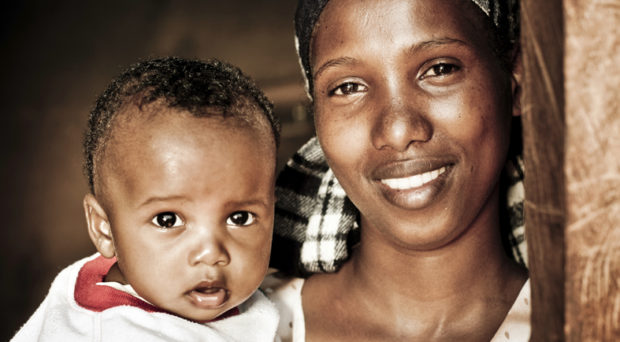
Recent WHO guidelines for care during pregnancy and childbirth have emphasised the need for ensuring a positive experience for women. Respectful maternity care is a universal human right for every child-bearing woman around the globe, as advocated by the White Ribbon Alliance (WRA) and others.
However, there are numerous studies showing that this right is not in place yet in many settings. The WRA published the Respectful Maternity Care (RMC) Charter in 2017, and thankfully more and more stakeholders are becoming aware of the need to treat women with dignity and respect.
Respectful maternity care is a universal human right … However, there are numerous studies showing that this right is not in place yet in many settings.
The charter sets out various forms of disrespect and abuse (D&A) as well as the key areas of RMC that ensure patient-centered care. These include the right to information, informed consent and refusal, and respect for a woman’s choices and preferences, including companionship during maternity care.
There is growing evidence of D&A in maternity care, especially in low-resource settings. According to a study exploring the quality of care during childbirth in Kenya, up to 20% of women felt humiliated during labour and birth. Another study in Ethiopia reported that women’s basic rights to information and informed consent were violated in all cases included in the study.
We set out to explore some of the reasons behind this. The results of our study, titled “‘We are the ones who should make the decision’ – Knowledge and understanding of the rights-based approach to maternity care among women and healthcare providers,” indicate that there is still a lot to be done.
Awareness of the RMC Charter and the problems it highlights is still very low among some of the key stakeholders in maternal and newborn health in our hospital in Malawi. This is especially true of healthcare providers, who are expected to act to prevent (not perpetuate) D&A and to treat women with respect and dignity.

In our study, we found that women valued skilled professional care at birth and recognised this to be of benefit to them, but they said they would prefer to be assisted by a student midwife who treats them with respect and dignity than by a qualified professional midwife who does not. This is a strong wake-up call to all stakeholders that RMC is no longer optional – it is an essential part of maternity care.
Our study also highlights the importance of involving women in decisions about their health and that of their babies. We didn’t expect this finding given that the study was conducted in a setting where many women are still illiterate, and decisions are often taken at the family/community level rather than at the individual level. But the women who participated in our group discussions were very keen to be informed about their care and to be involved in the decision-making process.
Way Forward
How best can we raise awareness about RMC? A paper by O’Connor and colleagues has proposed that for awareness-raising campaigns to be successful, there should be strategic planning to capture the attention of key stakeholders and to deliver persuasive messages. There needs to be a receptive environment that maximises the use of existing and potential resources.
Integrating the principles of the RMC Charter into existing maternal and newborn services is a worthwhile effort. However, RMC should not be treated separately from the rest of the maternity services. It should be made an integral part of service delivery processes.
Several studies (including Bohren et al.) indicate that there is a strong link between the experience and perception of quality of care by women and the uptake of maternity services in low-resource settings, including skilled birth attendance. Eliminating D&A and providing high-quality professional maternity care will have a triple effect: women will be satisfied with the care they receive; healthcare providers will have a sense of satisfaction; and, with improved uptake of evidence-based care packages, maternal and newborn health outcomes will improve.
At the Centre for Maternal and Newborn Health, Liverpool School of Tropical Medicine, we work with stakeholders, including healthcare providers, and conduct implementation research in low-resource settings to improve the quality of maternal and newborn health services.
Comments